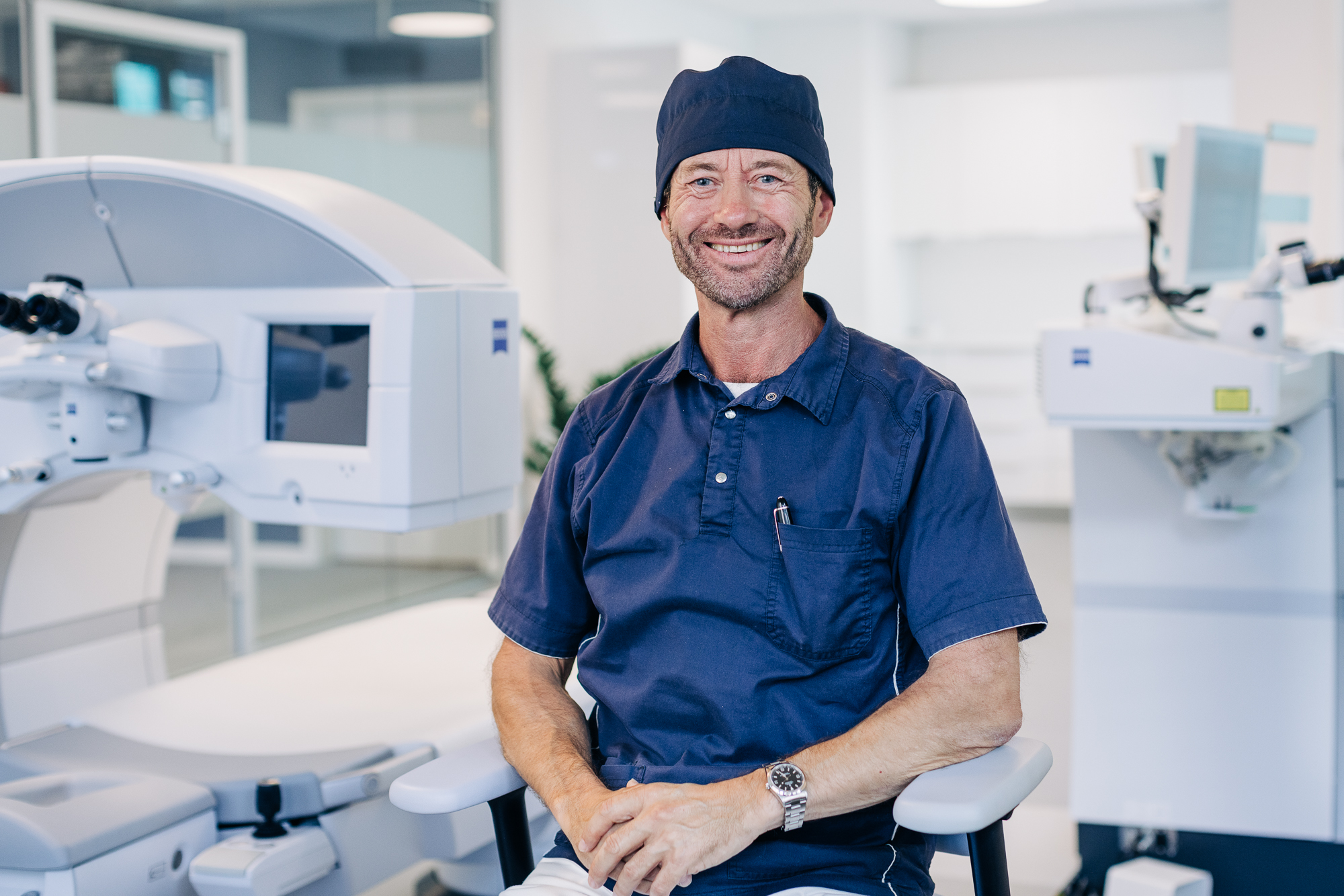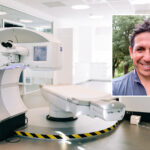Are you considering laser eye surgery? Learn about the post-treatment phase.
“Many feel anxious before an eye surgery, and we truly empathize with that,” says the ophthalmologist at PMP Eyecare, Dr Petter Montagu-Pettersen.
This article addresses the most common questions about side effects during and after laser eye surgery.
“We see happy patients every day who have had their eyes treated. The general feedback we get is a sense of freedom from not being dependent on glasses or contact lenses anymore, also how effortless, pain free, and straightforward our patients experienced the procedure.”
Curious about laser eye surgery? Read about what happens before, during, and after the surgery.
Do I risk serious injuries from laser eye surgery?
Severe eye injuries are not seen with today’s methods and equipment for FS Assisted LASIK treatments. At PMP Eyecare, we use state-of-the-art lasers with a fast and precise sensor called an eye tracker, ensuring that the laser follows your eye movement. In the rear event a patient’s eye or head moves outside the area the tracker can follow, the treatment will stop and we can finish the treatment after realigning the position.
Is the result of laser eye surgery permanent?
In principle, the effects are lifelong.
However, it’s important to note that our vision develops in two phases. Between the ages of 20 to 45, the vision tends to remain stable, and the lens inside the eye is flexible, ensuring good visual acuity at all distances with whatever prescription you use, or if no prescription is needed. After the age of 45-50 years, the lens inside the eye loses its flexibility, and the onset of presbyopia is a fact. This commands the need for reading glasses or varifocals.
Short-sightedness and far-sightedness are both linked to the type of lens required for clear distance vision. When a plus lens is necessary for sharp distance vision, the condition is called hyperopia of far-sightedness. If a minus lens is needed for good distance vision, the condition is called myopia or short-sightedness.
When we treat patients between the ages of 20 and 40 for short-sightedness, astigmatism, or far-sightedness, both eyes are treated to achieve neutral optics, called emmetropia. Your vision will be good at all distances on both eyes, like all individuals with normal eyes in the same age group.
During the period between the age of 45 and 50 years, the need for reading glasses will manifest, as it does for all people with normal eyes in the same period in life. Your visual acuity at distance remains good.
Our FS LASIK patients treated before the onset of presbyopia will benefit from our treatment upgrade program, where we will offer an upgrade from FS LASIK to Presbyond treatment for presbyopia for the difference in cost between the two treatments. Your vision will again be restored to normal and there is really no “wrong” time for eye surgery.
From the age of 50, we don’t expect any expect any substantial visual change. However, in the few cases changes do occur, we offer an upgrade of the treatment for a small fee.
PMP Eyecare offers a life-long plan for your eyesight.
Read more about the different types of laser eye treatments here.
Does laser eye surgery hurt?
The treatment is painless. We use local anesthesia in the form of eye drops and a standard pre surgical medication consisting of painkillers and premedication medication beforehand. You will also be provided a comfortable recliner where you can relax for the first three hours after the procedure. Resting in our quiet room with your eyes closed significantly reduces the healing time, dryness, and discomfort after the surgery.
You’ll also be given eye drops to use at home after the surgery. You may feel a slight dryness in the eyes or a heightened sensitivity to light the first few days after surgery. These symptoms are discrete, will be alleviated by using artificial tear drops and will not prevent you from normal activities like driving and work.
Will I get a blurry vision post-surgery?
Depending in condition we have treated, most people will experience excellent vision al all distances already the day after surgery. Far sighted patients with high power prescriptions might experience a tendency to blurry vision at far distance the first few weeks. The symptoms are discrete and will not prevent you from driving.
Does laser eye surgery involve a risk of infection?
There is a slight increased risk of infection the first few days following the treatment. To prevent infection, all equipment we use is sterile, and you will be equipped with antibiotic eye drops and artificial tear drops to take home to use the first week after surgery.
As a safety measure and for your comfort, you will rest at the clinic for three hours after the treatment and have a thorough eye examination where we also rinse your eyes and instill antibiotic eyedrops. Your visual acuity is already good at this point.
Do you have more questions about laser eye treatment?




